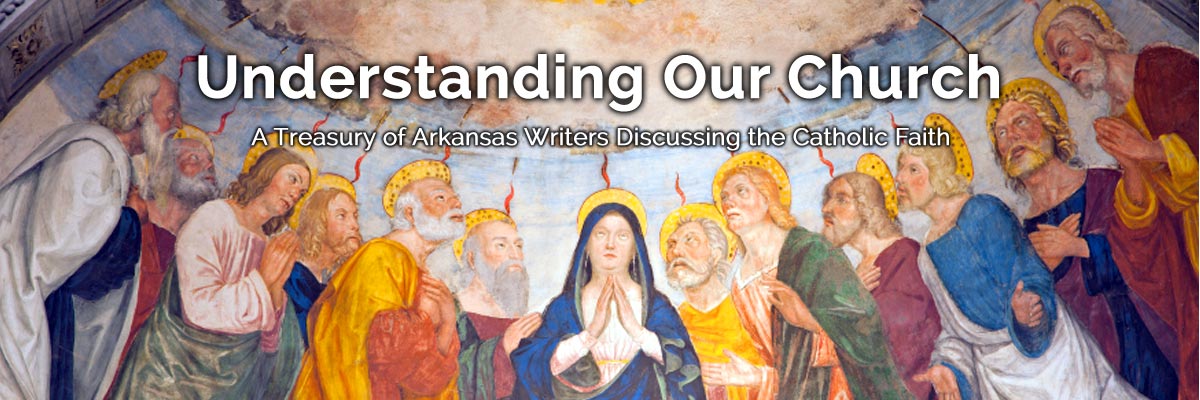Official Website of the
Catholic Diocese of Little Rock
Respectful questions, discussion in theology club opens young minds
Published: August 11, 2018
By Edward C. Dodge
Catholic High School for Boys
John was talking about dark matter and dark energy in space. He was talking physics, clearly having learned a lot from the priest who taught him the course.
He spoke calmly, melding his knowledge of science into a discussion of why he didn’t believe in God. The other students listened to him, granting him the space to share his thoughts. When he finished, one of his classmates responded with respect and knowledge.
Nick corrected some of the scientific comments, and he wove in Aquinas’ theology for good measure. John listened, nodded and admitted that he’d learned something and he’d have to re-evaluate some of his beliefs.
As these young men have learned, theology needn’t be a scary word. St. Anselm defined it as faith seeking understanding. Why not take up a work of theology, challenge yourself and ponder God anew?
This is why I love sponsoring the Catholic High School Theology Club.
Our Church teaches us to stand firm in our beliefs, to share them openly and honestly, but to respect others as we would like them to respect us. When we initially gather each year, I remind the members of this teaching. Our purpose is to learn and to grow in truth together. That means we might sometimes be challenged, but that’s OK. It’s even good. And while the majority of the members are Catholics, Christians of every creed and students of no belief also join us, learn with us what the Catholic Church actually teaches and share their own traditions and beliefs.
One of the main fruits of Theology Club is that students take possession of their faith. One boy came to the club as a freshman years ago, and like many, he was filled with misconceptions of what the Church taught.
By joining the club and listening to discussions like the one above, he found that Christianity is much deeper than the story-based faith he’d learned as a youth, and it completely changed his mindset: Christianity in general and catholicism in particular were not insular or close-minded cliques.
Rather, to the fundamental questions of human life — Who am I? Why am I here? — Christianity responds with “You are God’s, and you are here because he loves you.” When viewed through that lens, we can see that even the “hard” teachings of the Church stem from love and a hope for lasting happiness.
More recently we read a story about a fictional theologian who argued that Judas was the incarnation: he’d suffer infinite ridicule and damnation as repayment for the infinite debt humanity owed to God.
Now, none of us suddenly became Iscariots rather than Christians, but that short story spurred weeks of discussions about the true nature of humility and what the incarnation really means — and not just in objective Church teaching, but what it means to and for me.
Our fraternity allowed us to contemplate Jesus’ divinity, who Judas was, what role he played and even how he related to Mary the Mother of God because his role, like hers, balanced along the intersection of free will and determinism.
There are several powerful results of small faith groups like Theology Club, and one is ministry. By diving into faith and by being comfortable discussing faith with others, whether likeminded or not, the young men in this club become quite naturally prepared to minister joyfully to others.
Quite a few have gone on to be Search leaders, youth ministers, ordained ministers in their churches and several have become Catholic priests. The men in question may not have made their choices because of Theology Club, but it certainly had an impact.
As these young men have learned, theology needn’t be a scary word. St. Anselm defined it as faith seeking understanding. Why not take up a work of theology, challenge yourself and ponder God anew?




